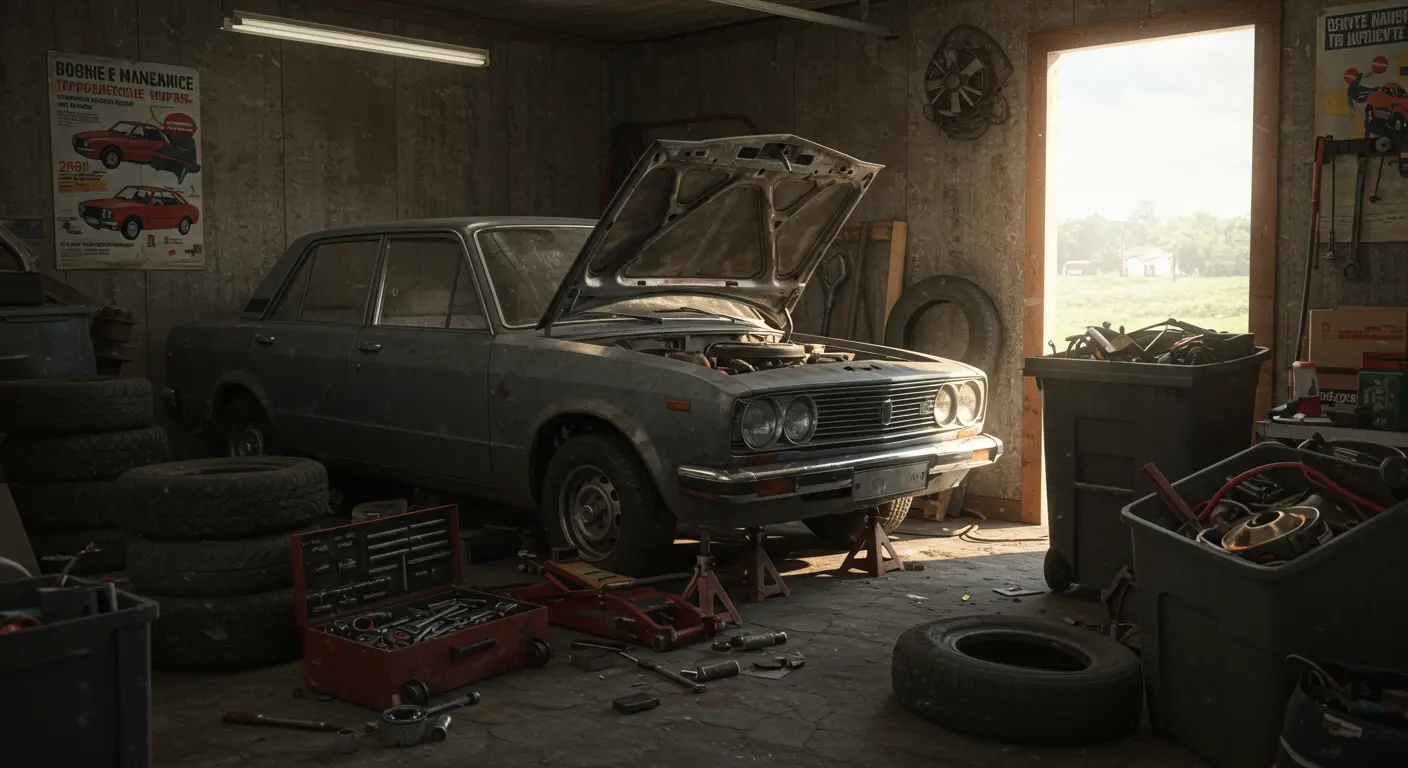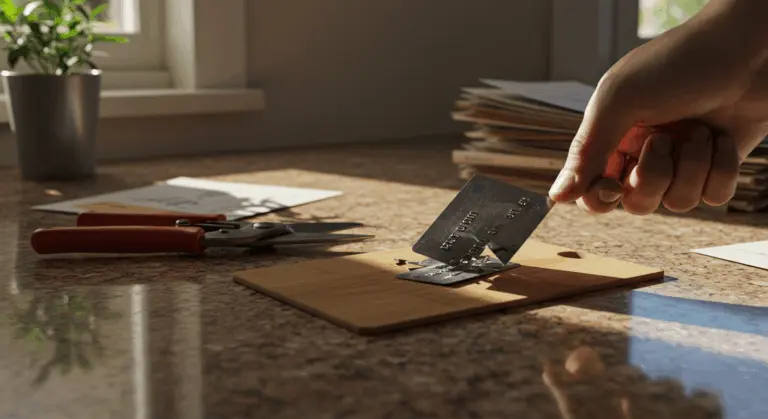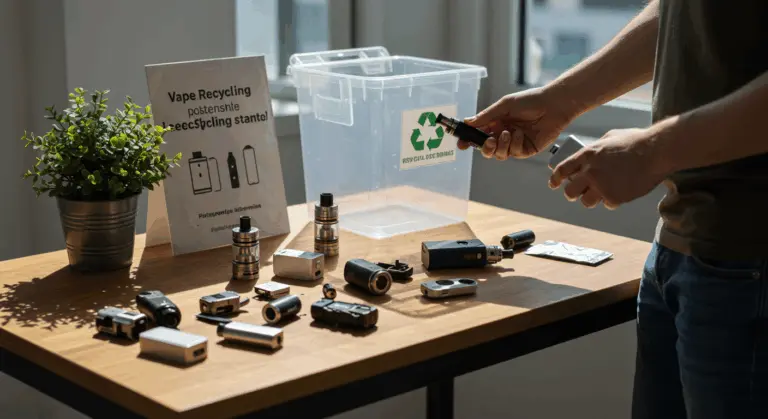Understanding Your Options for Old Car Disposal
As your vehicle reaches the end of its useful life, you have several disposal options available. Each path offers distinct advantages, shaped by your car’s current state, financial aspirations, and how much time you’re willing to invest. Understanding these options helps you choose the best approach.
Key disposal methods include:
-
Car Removal Services: Convenient for non-operational vehicles, often with free towing and cash for scrap value.
-
Dealership Trade-in: Simplifies paperwork and may lower sales tax on a new car purchase.
-
Online Platforms: Reach a wide audience of buyers or get instant offers from used car purchasing companies.
-
Private Sale: Selling it yourself can yield higher returns but requires more time and effort.
-
Recycling: Ensures environmentally responsible disposal for end-of-life vehicles.
-
Donation: Supports a charity and may provide a tax deduction.
Scrapping Your Car – What You Need to Know
When your car is no longer roadworthy, scrapping becomes a practical choice that extracts value from steel, aluminum, and salvageable components rather than relying on the car’s ability to transport you from point A to point B.
Several pathways exist for scrapping your vehicle:
-
Auto Salvage Yards/Junkyards: These traditional options evaluate your car based on weight, scrap metal value, and salvageable parts.
-
Online Junk Car Buyers: Modern services like Carvana or Peddle provide instant quotes, free towing, and nationwide service.
-
Local Mechanics: Repair shops may buy cars for parts, potentially offering a better price for valuable components.
-
Specialized Salvage Companies: These businesses focus on specific makes or models and may pay more for high-demand parts.
-
Private Buyers: Online marketplaces like Craigslist or Facebook Marketplace connect you with individuals seeking project cars or parts.
To ensure a smooth scrapping process and get the best price, follow these steps:
Donating Your Old Car – Benefits and Process
Car donation presents a philanthropic alternative to traditional selling or scrapping, which can provide meaningful tax benefits. When you donate to a qualified charity, you may qualify for tax deductions based on the car’s eventual auction price.
The donation process is straightforward. Most charitable organizations provide free towing, eliminating transportation concerns you’d otherwise face when disposing of a lifeless vehicle.
The process typically involves three steps:
-
Select a Charity: Research and choose a legitimate 501(c)(3) organization, such as Goodwill or Habitat for Humanity.
-
Arrange Pickup: Complete a donation form (usually online) and schedule a free pickup.
-
Transfer Ownership: Sign over the title and obtain a tax receipt from the charity for your records.
While donating won’t give you immediate cash like a scrapyard transaction might, it offers something different entirely. The combination of tax benefits, free towing, and supporting a good cause makes this an attractive option for many vehicle owners.
Maximizing the Value of Your Old Car
Extracting maximum value from your aging automobile deserves careful consideration, as even cars in poor condition retain some value in their components and raw materials.
Research is essential when preparing to bid farewell to an old car. Take time to research current scrap metal prices—these prices fluctuate with market conditions and can vary significantly between seasons.
Consider dismantling valuable components separately before scrapping the remainder—this approach can significantly increase your total payout. High-demand parts include:
Never settle for the first offer. Contact multiple junkyards, scrap dealers, and online buyers, as prices can fluctuate by hundreds of dollars for identical vehicles. Honesty about your car’s condition, while highlighting valuable parts, helps you get the highest offer.
Assessing Your Car’s Condition
To pinpoint the optimal disposal strategy, honestly evaluate your car’s condition by examining these key areas:
-
Mechanical Health: Note major issues with the engine, transmission, or electrical systems. High mileage and poor reliability are key indicators for scrapping.
-
Body and Frame: Check for extensive rust, cosmetic damage, or structural problems, especially on the frame.
-
Safety Issues: Critical problems with brakes, steering, or structural integrity make a car unsafe to sell to another driver.
-
Repair Costs vs. Value: If repair costs exceed 50% of the car’s market value, disposal is often the most economical choice.
-
Age and Features: Vehicles over 15 years old often lack modern safety features. Non-functioning components like air conditioning also reduce value.
Legal Considerations When Disposing of Your Car
Properly disposing of an aging automobile requires following specific legal steps to avoid future liability. The cornerstone requirement? Proof of ownership, usually in the form of the vehicle’s title bearing your name.
When selling your car for scrap or to a private party, you must legally transfer ownership by signing the title over to the buyer. This step protects you from future responsibility for the vehicle.
Don’t overlook your license plates—remove these from the vehicle before transferring ownership and returned to your state’s DMV or transportation department.
Cars contain hazardous materials—battery acid, engine fluids, and refrigerants—that require proper handling. Using licensed recycling facilities ensures these substances are disposed of safely according to EPA guidelines.
If you’re donating your vehicle to charity, you’ll need additional paperwork for tax purposes. Request a receipt that includes the charity’s name, donation date, and either the sale price (if they auction it) or the fair market value.
What to Do If You Don’t Have the Title
Disposing of a car without a title presents significant challenges, as most legitimate buyers demand proof of ownership. If you cannot locate the title, gather alternative documents like vehicle registration, insurance cards, or an original bill of sale to help establish ownership.
Many states offer pathways for handling titleless vehicles. For instance, if your car meets certain age requirements (typically 10–15 years old, depending on the state), some junkyards may accept it without a title under specific “abandoned vehicle” or “end-of-life vehicle” provisions.
The best approach is obtaining a duplicate title from your state’s DMV. This ensures a smooth process and maximizes your vehicle’s value, as buyers pay significantly more for properly documented cars.
If you’re pressed for time, some specialized junk car buyers advertise “no title, no problem” services, but be very careful. Verify their legitimacy through reviews and business registrations, as these operations sometimes navigate legal gray areas.
Handling Financed Cars
If you carry an outstanding loan on your car, you need to handle the loan first. The lender maintains a lien on the vehicle, giving them legal rights until you pay off the loan.
Start by contacting your lender directly to request the current payoff amount. This amount may differ from your monthly statements because it includes the remaining principal balance plus any interest accrued to the payoff date.
After making the payment, the process isn’t finished. Request written confirmation that the lien has been released, usually in the form of a lien release document or a clean title transferred to your name.
If you find yourself “underwater” on your loan (owing more than the car’s worth), you’ll need to pay the difference out of pocket before proceeding with disposal. Some owners choose to continue making payments until the loan balance matches the car’s value.
Remember to preserve copies of all transaction records and lien release documentation for your files. This protects you from future liability issues and gives you proof of proper ownership transfer when disposing of the vehicle.
Alternative Options for Old Car Disposal
Consider donating your vehicle to a vocational or technical school—an often-overlooked option. Many automotive training programs actively seek vehicles where students can practice repairs and maintenance.
If you own vintage or classic cars beyond personal repair capabilities, connecting with car enthusiast clubs can yield surprising results. Members of these passionate organizations often look for project cars or parts vehicles and may eagerly take a non-running vehicle off your hands.
Using Online Platforms for Disposal
Online platforms have transformed how people dispose of old cars, creating convenient digital marketplaces. Major platforms like Autotrader andeBay Motors provide extensive reach, while services likeCarman andVroom deliver instant cash offers.
For maximum convenience, services like Vroom handle all paperwork and collect the car from your location—ideal for vehicles that no longer run.
Owners of classic, rare, or collectible vehicles may find specialized platforms more profitable. Bring a Trailer operates on an auction format designed for enthusiast vehicles, potentially fetching higher prices than general marketplaces even for cars in less-than-pristine condition.
When choosing an online platform, consider these factors:
-
Listing fees and commission structures
-
Audience demographics
-
Requirements for vehicle condition and documentation
-
Payment processing procedures




